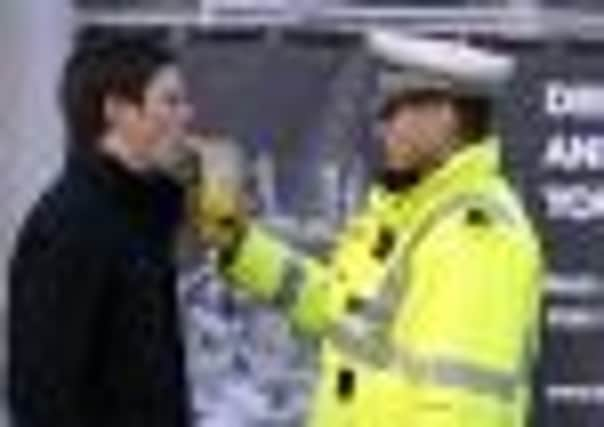Conflict between Scots and English drink-drive laws resolved


Although the same legislation covers the UK, courts on either side of the Border have applied a different test since the 1980s in relation to breath sample cases.
In Scotland, the result of only one breath test has been enough for a drink-driving conviction, if the driver refuses to supply a second sample.
Advertisement
Hide AdAdvertisement
Hide AdHowever in England there must be two samples before anyone can be found guilty of driving while over the alcohol limit. If a second breath sample has not been supplied, then the person could be convicted only of failing to provide the sample.
In a 3-2 split decision of the Court of Criminal Appeal in Edinburgh yesterday, judges decided that the English approach is correct.
The result means that offenders in Scotland will no longer be convicted of drink driving and failing to provide a sample. The punishments for both offences are in line with each other.
The court pointed out that the ruling is likely to affect only a small number of cases, but one motorist who crashed his car and gave a reading of more than three times the legal limit had his conviction overturned and the sentence quashed.
Bryan Barclay, 49, lost control approaching a roundabout and hit the central reservation barrier on the A96 at Kintore,
Aberdeenshire, late at night on 29 December 2010.
He was required at a police station to provide two samples of breath. The first gave a reading of 112 – the legal limit is 35 – and he failed to provide a second. He sucked the tube instead of blowing.
Barclay, of Kintore, was convicted at Aberdeen Sheriff Court of careless driving, driving without a licence, driving while over the alcohol limit, and failing to provide two breath samples. He appealed against the drink-
driving conviction.
The Justiciary Appeal Court in Edinburgh heard that in a 1986 decision, a three-judge bench of the court held that a conviction could be secured with only one breath sample if the motorist had failed to provide a second.
Advertisement
Hide AdAdvertisement
Hide AdHowever, the House of Lords decided in an English case in 1988 that a driver could not be convicted on a single sample, and that the offences of failing to provide two samples and drink-driving were mutually
exclusive.
Lord Eassie said the House of Lords decision was sound.
He asked: “Why should parliament have intended the evident anomaly, if not absurdity, that the motorist who refuses to provide any specimen should be guilty of only one offence, whereas the driver who provides one specimen, thereby demonstrating initial compliance, should yet be guilty of two offences should he not provide the second sample?”